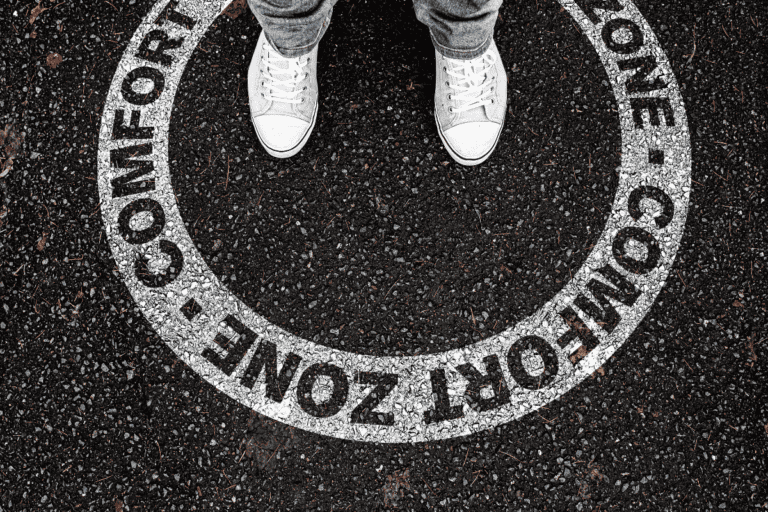Wellness and Emotional Well-Being: Your Mental Health Guide
When it comes to navigating the complexities of modern life, it's essential to prioritize your emotional well-being. You might have found yourself feeling overwhelmed or stressed, and that's completely normal.
But have you ever wondered about the impact these feelings can have on your mental health? Understanding the nuances of emotional wellness and learning effective coping strategies can make a significant difference in how you navigate life's challenges.
There's a wealth of information and practical tips waiting for you, so you can take proactive steps towards nurturing a healthier mind.
Key Takeaways
- Emotional wellness is important for maintaining a balanced and healthy state of mind.
- Chronic stress can significantly impact mental well-being and contribute to physical health problems.
- Prioritizing self-care practices such as exercise, healthy eating, and relaxation techniques is essential for nurturing mental health.
- Building resilience helps navigate through challenging times and bounce back from adversity.
Understanding Emotional Wellness
Understanding emotional wellness is essential for maintaining a balanced and healthy state of mind, allowing you to effectively navigate life's challenges and cultivate meaningful relationships.
Emotional balance is crucial for managing stress, making sound decisions, and fostering a sense of inner peace. It involves acknowledging and accepting your emotions while also developing healthy coping mechanisms to address them.
Achieving emotional balance doesn't mean being happy all the time, but rather having the resilience to bounce back from adversity. This balance contributes to mental clarity, enabling you to think more rationally and make well-informed choices.
When you're emotionally well, you can communicate more effectively, build stronger connections with others, and handle conflicts with greater ease. It also allows you to be more empathetic towards others, fostering a supportive and nurturing environment.
Impact of Stress on Mental Health
Experiencing prolonged or overwhelming stress can have a significant impact on your mental well-being, affecting your ability to cope with daily challenges and maintain a sense of emotional balance.
The impact of stress on mental health can lead to a range of implications, including heightened anxiety, depression, irritability, and difficulty concentrating. Chronic stress can also contribute to physical health problems, further exacerbating mental health issues.
It's crucial to recognize the signs of stress and implement effective stress management techniques to mitigate its impact. Engaging in regular physical activity, practicing mindfulness and relaxation techniques, maintaining a healthy work-life balance, and seeking social support are effective coping strategies to manage stress and protect your mental well-being.
Additionally, fostering a positive mindset, setting realistic goals, and establishing boundaries can help alleviate the burden of stress. Understanding how stress affects your mental health and actively working towards managing it can significantly improve your overall emotional well-being.
Practicing Self-Care for Well-Being
To maintain your well-being, it is essential to prioritize practicing self-care as a fundamental aspect of nurturing your mental health. Engaging in self-care practices and mindfulness techniques is crucial for managing stress and promoting emotional well-being. By incorporating relaxation methods into your daily routine, you can effectively reduce the negative impact of stress on your mental health. Here are some self-care practices and mindfulness techniques to help you prioritize your well-being:
| Self-Care Practices | Mindfulness Techniques | Stress Management |
|---|---|---|
| Regular exercise | Meditation | Deep breathing |
| Healthy eating habits | Mindful walking | Time management |
| Sufficient sleep | Yoga | Setting boundaries |
| Digital detox | Gratitude practice | Journaling |
| Social connections | Visualization | Progressive muscle relaxation |
Incorporating these self-care practices and mindfulness techniques into your daily life can help you manage stress and enhance your emotional well-being. Remember, prioritizing self-care is not selfish, it is essential for maintaining a healthy mind and body.
Building Resilience and Coping Strategies
You've faced tough times and come out stronger, proving your resilience in the face of adversity.
Understanding healthy coping techniques is crucial for navigating life's challenges.
Let's explore how to build resilience and develop effective coping strategies to help you thrive.
Resilience in Adversity
Building resilience and developing coping strategies is essential for navigating through challenging times and emerging stronger on the other side. Resilience training helps you bounce back from adversity and adapt to change. It's about developing a mindset that allows you to confront and overcome life's challenges.
When facing adversity, it's normal to feel overwhelmed, but by building resilience, you can cultivate the ability to cope and recover. Coping strategies such as seeking support from others, maintaining a positive outlook, and practicing self-care can aid in developing resilience. Reflecting on past experiences where you've overcome adversity can also help build resilience.
It's important to remember that resilience isn't about avoiding stress or difficult situations, but rather about developing the strength to navigate through them and emerge stronger.
Healthy Coping Techniques
When facing challenges, it's important to cultivate healthy coping techniques that can help you build resilience and navigate through adversity with strength and adaptability.
Stress management is crucial for maintaining emotional well-being. Engaging in relaxation techniques such as deep breathing, progressive muscle relaxation, or yoga can help alleviate stress and promote a sense of calm.
Emotional regulation is also vital in managing difficult situations. Practicing mindfulness techniques, such as meditation and grounding exercises, can assist in staying present and centered amidst turmoil.
Overcoming Life Challenges
As you navigate through life's challenges, cultivating healthy coping techniques and building resilience can empower you to overcome adversity with strength and adaptability.
Finding strength in difficult times is essential for your emotional well-being. Here are some ways to help you overcome obstacles:
- Seek Support:
- Connect with friends, family, or a support group to share your feelings and gain perspective.
- Consider seeking professional help from a therapist or counselor to develop coping strategies and build resilience.
Nurturing Positive Emotions
To nurture positive emotions, it's important to actively seek out and engage in activities that bring you joy and fulfillment. Cultivating gratitude can significantly impact your emotional well-being. Take a moment each day to reflect on the things you're grateful for. This practice can shift your focus from what's lacking in your life to the abundance that surrounds you.
It's also essential to nurture joyfulness by intentionally incorporating activities that bring you happiness. Whether it's spending time with loved ones, pursuing hobbies, or simply enjoying nature, these moments of joy can have a profound effect on your overall emotional state.
Additionally, practicing mindfulness can help you become more attuned to your positive emotions. By being present in the moment, you can fully experience and savor the joyful experiences that come your way.
Embracing positive emotions doesn't mean ignoring negative ones; rather, it involves consciously choosing to focus on and cultivate the positive aspects of your life. By actively seeking out and nurturing positive emotions, you can enhance your overall emotional well-being and build resilience in the face of life's challenges.
Recognizing Signs of Emotional Distress
Understanding the signs of emotional distress is crucial for taking proactive steps to support your mental well-being. It's important to recognize the triggers and manage your emotions effectively. Here's a closer look at how you can identify signs of emotional distress:
- Physical Symptoms:
Pay attention to physical signs such as changes in appetite, sleep disturbances, and unexplained aches and pains. These could be indicators of underlying emotional distress.
- Behavioral Changes:
Notice any sudden changes in behavior, such as withdrawal from social activities, increased irritability, or engaging in risky behaviors. These could signal emotional distress that needs attention.
Recognizing these signs is the first step in managing your emotional well-being. By being mindful of your physical and behavioral cues, you can gain insight into your emotional state and take appropriate measures to address any distress.
It's important to remember that seeking support from friends, family, or mental health professionals is a proactive step towards maintaining emotional well-being.
Importance of Seeking Support
Hey, seeking support is crucial for maintaining good mental health.
Having supportive networks of friends and family can provide comfort and understanding during tough times.
Professional guidance from therapists or counselors can offer valuable strategies and tools to help you navigate through challenges.
Supportive Networks
Seeking support from a strong network of friends and loved ones can significantly impact your mental well-being, providing a sense of belonging and understanding during challenging times. When facing emotional struggles, it's essential to consider the following:
- Peer Support: Engage with individuals who've similar experiences and can offer empathy and understanding.
- Look into support groups or online communities where you can share your feelings and receive validation.
- Community Resources: Explore local organizations and mental health services that offer support and guidance.
- Consider reaching out to community centers, religious institutions, or non-profit organizations to access resources and connect with others.
Professional Guidance
Reaching out to a mental health professional can provide valuable guidance and support as you navigate your mental well-being. It's essential to recognize that seeking help is a sign of strength, not weakness.
When it comes to finding support, therapist recommendations and mental health resources can play a crucial role in your journey. A trained therapist can offer a safe and non-judgmental space for you to explore your emotions and challenges. They can provide you with coping strategies, help you understand your thoughts and feelings, and guide you towards positive changes. Additionally, they can assist in diagnosing and treating mental health conditions.
Cultivating Healthy Relationships
Cultivating healthy relationships requires actively nurturing mutual trust, open communication, and genuine empathy.
It's crucial to develop strong communication skills and practice boundary setting to ensure that both parties feel heard and respected. Setting clear boundaries helps in maintaining a healthy balance in relationships, allowing each person to express their needs and limits.
Conflict resolution is another vital aspect to focus on. Learning how to navigate disagreements with empathy and understanding can help strengthen the bond and create a safe space for open dialogue.
Building empathy is key in fostering healthy relationships. Taking the time to understand and validate each other's emotions can significantly enhance the connection and create a supportive environment.
It's essential to remember that healthy relationships are a two-way street, requiring effort and commitment from both sides. By honing in on communication skills, boundary setting, conflict resolution, and empathy building, you can actively contribute to the growth and sustainability of your relationships.
Mind-Body Connection and Well-Being
Understanding the intricate connection between your mind and body is essential for fostering overall well-being and health. The mind-body connection is a powerful and often underestimated aspect of wellness. Your thoughts, feelings, and attitudes can positively or negatively affect your biological functioning, and conversely, your physical state can influence your mental and emotional well-being. By recognizing this connection, you can take proactive steps to improve your holistic wellness.
| Mindfulness Practices | Benefits |
|---|---|
| Meditation | Reduces stress and anxiety |
| Yoga | Improves flexibility and mental clarity |
| Deep Breathing Exercises | Calms the mind and reduces tension |
| Tai Chi | Enhances balance and focus |
Incorporating mindfulness practices into your daily routine can help you cultivate a stronger mind-body connection. These practices encourage you to be present in the moment, fostering a deeper awareness of your thoughts, emotions, and physical sensations. By integrating these activities into your life, you can enhance your holistic wellness and promote a balanced and harmonious relationship between your mind and body.
Empowering Mental Health Through Lifestyle Choices
As you explore the impact of lifestyle choices on mental health, it becomes evident that nurturing the mind-body connection through mindful practices can significantly empower your overall well-being. Making healthy habits a part of your daily routine is crucial for mental empowerment. Consider the following:
- Physical Activity: Engaging in regular physical activity not only improves your physical health but also has a profound impact on your mental well-being. It releases endorphins, reduces stress, and enhances your overall mood. Incorporate Exercise Into Your Routine: Find an activity you enjoy, whether it's dancing, hiking, or practicing yoga, and make it a regular part of your week.
- Nutrition: Your diet plays a vital role in your mental health. Consuming a balanced diet rich in fruits, vegetables, lean proteins, and healthy fats provides the essential nutrients your brain needs to function optimally. Mindful Eating: Pay attention to what you eat, savor each bite, and be mindful of how different foods make you feel.
Conclusion
Take the time to prioritize your emotional well-being and mental health.
Practice self-care, seek support, and foster healthy relationships.
Remember, 'a healthy mind is a happy mind.'
You have the power to build resilience, nurture positive emotions, and make lifestyle choices that empower your mental health.
Your well-being is worth investing in, and by taking these steps, you can lead a more fulfilling and balanced life.







